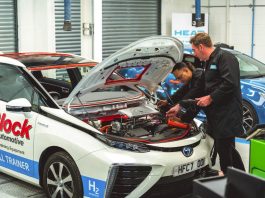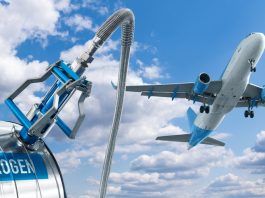The European automotive industry stands at a critical juncture, with transformative shifts shaping its future.
Recognising the sector’s importance to economic growth, employment, and innovation, European Commission President Ursula von der Leyen has launched a strategic dialogue on the future of the European automotive industry.
This initiative aims to foster collaboration among key industry leaders, policymakers, and stakeholders to address pressing challenges and secure long-term prosperity for the sector.
President von der Leyen explained: “The European automotive industry is at a pivotal moment, and we acknowledge the challenges it faces.
“That is why we are acting swiftly to address them. The fundamental question we need to answer together is what we still miss in order to unleash the innovative power of our companies and ensure a robust and sustainable automotive sector.
“Today marks the beginning of a dialogue that will help us navigate the changes ahead. The outcome of this dialogue will be a comprehensive Action Plan, which we will present on 5 March.
“This Action Plan will chart a clear course to ensure our industry can thrive in Europe and compete successfully on a global stage.
A pillar of the European economy
The European automotive industry plays a pivotal role in driving economic success across the continent.
Employing over 13 million people directly and indirectly, the sector generates approximately €1 trillion in GDP, making it one of the largest contributors to Europe’s economy.
Beyond its financial impact, the industry is a cornerstone of mobility, producing safe, innovative, and globally competitive vehicles that serve both citizens and businesses.
However, this vital industry is experiencing a period of rapid transformation fuelled by technological advancements, sustainability imperatives, and shifting market dynamics.
As Europe transitions towards a greener, more digital future, the automotive sector must navigate evolving regulations, increasing global competition, and the demand for cutting-edge innovations.
Strategic action plan for the automotive industry
Identifying the urgency of these challenges, President von der Leyen has commissioned an action plan to be presented by Commissioner Tzitzikostas on 5 March.
This comprehensive plan will outline strategic measures to support the European automotive industry’s resilience and growth. The primary objectives focus on ensuring access to talent and resources, driving technological innovation, and establishing a stable regulatory framework.
Addressing skill shortages and fostering workforce development will be crucial to meeting the demands of next-generation vehicle production. Encouraging research and development in electric vehicles, autonomous driving, and digital transformation will also play a key role in maintaining Europe’s competitive edge.
Additionally, creating predictable and pragmatic policies will support industry growth while maintaining environmental and safety standards.
Inclusive dialogue and collaborative decision-making
The development of the action plan is grounded in a transparent, inclusive process. A high-level discussion has already taken place, bringing together 22 key players from the automotive sector to identify urgent areas for intervention.
These discussions have emphasised the need for a global level playing field, addressing competition from international markets and reinforcing Europe’s position as a leader in automotive manufacturing.
Facilitating a clean transition is also a priority, requiring accelerated investments in EV infrastructure and emissions reduction strategies.
Regulatory streamlining remains another focus area, aiming to simplify existing regulations to create a more efficient and business-friendly environment for automakers and suppliers.
To ensure broad participation, the European Commission has launched a public consultation, inviting input from all stakeholders, including industry experts, policymakers, and the general public.
Additionally, four thematic work strands have been established to guide discussions on key issues:
- Commissioner Hoekstra will oversee strategies to support the sector’s shift towards sustainable energy and emissions reduction.
- Commissioner Séjourné will focus on strengthening the entire automotive supply chain, from raw materials to finished products.
- Commissioner Virkkunen will lead discussions on advancing smart mobility, digitalisation, and AI integration in vehicles.
- Commissioner Mînzatu will address workforce development, education, and labour market challenges within the industry.
The European Parliament and the Council will play an active role in shaping the Strategic Dialogue and will be regularly consulted throughout the process. Their engagement will ensure that the proposed measures align with Europe’s broader policy objectives and legislative framework.
Industry reaction
Europe’s automotive sector has reacted positively to the EU’s plans. Members of the European Automobile Manufacturers’ Association (ACEA) have emphasised the need for all manufacturers and suppliers with significant industrial presence in Europe to participate actively in future discussions.
They say that the unique perspective of the heavy-duty segment must be integrated into all thematic work strands. ACEA will collaborate with relevant Commissioners across these thematic areas to provide critical input into the forthcoming action plan.
Ola Källenius, CEO of Mercedes-Benz and ACEA President, added: “The EU auto industry remains fully committed and economically invested in the transition towards zero-emission mobility.
“But the only way for this transition to succeed is to make it a market- and demand-driven transformation. The upcoming action plan must be built on this premise.
“The reality check to the current European Green Deal will not slow us down, but rather propel this transition by removing bottlenecks and introducing necessary flexibilities.”
A roadmap for a thriving automotive sector
As Europe moves towards a cleaner, more technologically advanced future, the automotive industry must evolve to remain competitive on the global stage.
The strategic dialogue, combined with the forthcoming action plan, marks a significant step towards ensuring that the European automotive industry continues to thrive, innovate, and lead in the global market.









